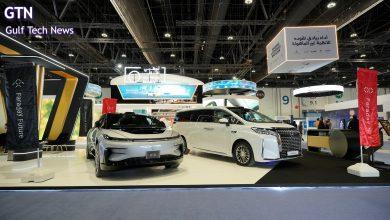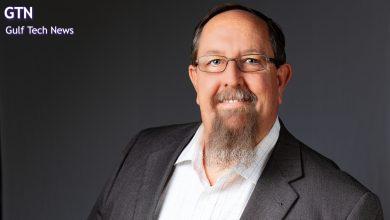AI’s Tipping Point Is Reshaping Tech, Investmentand the Global Economy
Hyperscaler spending accelerates worldwide while the Gulf positions itself at the centre of AI infrastructure and returns
From hyperscalers building vast GPU clusters to CEOs of major technology firms pursuing the same goal at pace, artificial intelligence (AI) is transforming business models and the global economy.
According to Denny Fish, technology and innovation portfolio manager and research analyst at Janus Henderson Investors, this convergence is unlike anything the tech world has seen, with far-reaching consequences for governments, investors and companies — particularly in the Gulf, where AI is shaping markets, policy, and industry leadership.
“Every single CEO of the most important tech companies in the world is chasing the same shiny object,” Fish says. “It’s existential, on both the upside and the downside.”
Investor sentiment around AI has not been straightforward, Fish points out. In early 2025, concerns surfaced following DeepSeek’s release, when the computing power required was initially misunderstood. Markets questioned whether heavy capital spending would translate into revenue. That uncertainty eased after Microsoft’s April earnings, where additional infrastructure delivered higher supply and a corresponding uplift in revenue — a turning point that signalled realised returns.
That reassessment coincided with widening adoption. Fish says around half of S&P 500 companies referenced AI in their first-quarter commentary, showing how quickly use cases are spreading across industries. Importantly, he believes the market still underestimates AI’s impact on margins. Large technology firms are already using AI in software development, research, support, and marketing.
“Microsoft illustrates the dynamic,” Fish adds. “Revenues accelerated in core businesses while headcount fell, a combination that points to meaningful margin expansion.”
AI’s physical footprint is also growing. Fish says that data centres require long lead times for permits and power, and that training clusters are scaling from hundreds of thousands of GPUs towards much larger systems. He expects periodic pauses in investment as companies absorb recent outlays, but remains confident about the multi-year direction and the industry’s push towards more advanced reasoning capabilities.
Beyond corporations, governments are recalibrating their policies. According to Fish, AI is now viewed as central to economic strength, social resilience, and national security. Policy impacts differ by subsector: software is largely insulated from tariffs, consumer internet faces growing exposure to digital tax regimes, and hardware production is increasingly diversified.
For AI servers, assembly in Mexico under the USMCA supports duty-free trade, while broader supply-chain adjustments help limit headline risks. These dynamics underscore how AI has become both an industrial and geopolitical priority, Fish says.
GCC Opportunity
For the Gulf, the global race is becoming a local opportunity. In the UAE, Microsoft invested $1.5 billion in Abu Dhabi-based G42 to accelerate AI and cloud collaboration, while the Technology Innovation Institute launched the Falcon 2 open-source model in May 2024.
In Saudi Arabia, Microsoft has completed construction on three Azure datacentre sites with public availability expected in 2026. Meanwhile, the Public Investment Fund and Google Cloud are advancing a $10 billion programme to establish a global AI hub near Dammam.
Looking ahead, Fish highlights three signals for investors to monitor. The first is margin expansion as AI tools raise productivity across industries. The second is the pace of data-centre construction and power contracting, which will dictate how quickly new capacity comes online. The third is the balance between broad AI platforms and domain-specific models that monetise more quickly.
“This dual track – advanced general capabilities on one side and near-term revenue drivers on the other – will determine where investors find sustainable returns,” Fish concludes.



